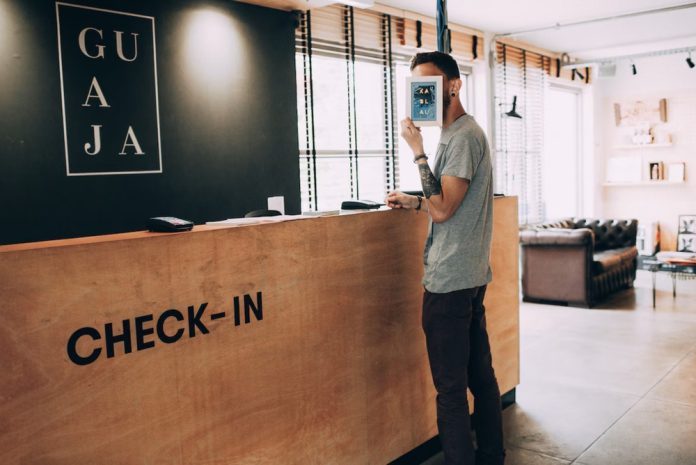Imagine a world where every interaction within the realm of hospitality is seamlessly enhanced by the power of technology. A world where hotels and resorts effortlessly cater to the unique needs and desires of their guests, ultimately boosting their own profitability.
With a growing demand for hospitality services, especially after a long period of isolation following the COVID-19 pandemic, the overall hospitality industry is poised for huge market value. As per Statista, the global market size of the hotel and resort sector is projected to reach a staggering $1.21 trillion in 2023. This figure is promising and should spur businesses within the industry to leverage technology and harness a new level of success.
In this blog, we will delve into the innovative ways in which technology can breathe new life into the hospitality business, uncovering the hidden goldmine that awaits those bold enough to seize the opportunity.
Streamlined Operations
In today’s highly competitive hospitality landscape, staying ahead of the game means embracing the power of technology to streamline operations. Here are three ways technology can help hotels achieve seamless operations:
Automated Check-in and Check-Out
With the help of self-service kiosks and mobile check-in apps, hotels can eliminate long queues at the front desk. Guests can simply use their smartphones to complete the check-in process, enabling the staff to focus on providing personalized experiences.
Efficient Resource Management
Leveraging smart systems and Internet of Things (IoT) devices, hotels can monitor and control various resources such as energy consumption, water usage, and HVAC systems. Real-time data analysis helps identify areas of inefficiency, enabling proactive measures to optimize resource utilization and reduce costs.
Integrated Property Management Systems
A comprehensive property management system (PMS) centralizes all hotel operations, from reservations and inventory management to housekeeping and guest services. This unified platform allows staff to access necessary information, facilitates seamless communication between departments, and streamlines daily workflows, resulting in improved productivity and enhanced guest satisfaction.
When hotels don’t have access to effective tips that can help streamline operations, it becomes difficult for them to remain afloat, particularly in the post-COVID competitive industry. Thus, the only option that remains is to embrace technology with alacrity to improve operational efficiency, which is also shown by a recent survey by HotelTechReport.
According to the survey, 39% of hoteliers view “improving operational efficiency” as the most crucial value proposition of technology. An additional 15% emphasized the importance of “improving business agility,” while 13% recognized technology’s role in “innovating for the future.” The figures make technology a game-changer in shaping both guest-facing and back-office processes.
Personalized Guest Experiences
In today’s digital age, guests expect more than just a comfortable stay; they expect delightful experiences. Technology is at the forefront of enabling hotels to meet these expectations and create unforgettable stays. Here are three ways technology can help hotels provide personalized guest experiences:
Advanced Guest Profiling
Through robust customer relationship management (CRM) systems and data analytics, hotels can gather valuable information about guests’ preferences, past stays, and special requests. This data enables hotels to create detailed guest profiles, allowing staff to anticipate and fulfill individual needs, from room preferences to dietary restrictions.
Mobile Apps and Chatbots
Mobile apps and chatbot technologies enable hotels to offer seamless and personalized interactions throughout the guest journey. Guests can use mobile apps to access hotel services, make requests, and receive personalized recommendations. Chatbots provide instant assistance and answer common queries, enhancing efficiency while maintaining a personalized touch.
Hotel Casting Solutions
With the rise of streaming platforms and personalized content consumption, hotel room casting solutions have become increasingly popular. These systems allow guests to stream their favorite shows and movies directly onto in-room TVs using their personal devices. Providing this tailored entertainment experience can help hotels enhance guest satisfaction and create a more homely atmosphere.
According to Allbridge, implementing casting solutions in hotels is a cost-effective approach. It eliminates the need for owners and managers to modify their current TV setups or Wi-Fi equipment. Simply having a Chromecast device allows guests to easily cast content onto TV screens. These solutions can seamlessly integrate with existing hotel systems, reducing expenses and maximizing the return on investment.
Online Presence and Direct Bookings
In the modern age of technology, establishing a robust online presence is important for hotels aiming to excel in a fiercely competitive market. Technology plays a pivotal role in empowering hotels to boost their online visibility and drive direct bookings. Let’s explore three ways technology can help hotels in enhancing their online presence and attracting more direct bookings:
User-Friendly Booking Engines
Integrating user-friendly and responsive booking engines into their websites can enable hotels to provide a seamless and convenient booking experience for potential guests. These engines enable visitors to check availability, view room options, and make reservations directly on the hotel’s website, eliminating the need for third-party booking platforms and increasing the likelihood of direct bookings.
Digital Marketing Strategies
Technology enables hotels to implement targeted digital marketing campaigns, leveraging social media platforms, pay-per-click (PPC) advertising, and much more. These strategies help hotels increase their online visibility, engage with potential guests, and drive traffic to their website, ultimately leading to a higher number of direct bookings.
Customer Relationship Management (CRM) Systems
CRM systems allow hotels to collect and analyze guest data, enabling them to personalize marketing efforts and tailor promotions to specific target audiences. By leveraging technology-driven CRM systems, hotels can create targeted email campaigns, loyalty programs, and personalized offers to entice guests to book directly.
However, there is still a bit of apprehension among hotel owners as to how sustainable is direct booking. To clear the doubt, SiteMinder’s Hotel Booking Trends report has brought to the fore some interesting statistics. According to the report, hotel websites played a more significant role as a revenue source in 2022 compared to 2019. In fact, direct bookings saw an increase in almost 50% of markets in 2021.
This data indicates how important it is to have a robust online presence amid the growing trend of direct booking. For hotel owners, the only way to tap into the trend is by leveraging technology which can help them create online channels and booking platforms.
Flexible Payment Procedures
In the dynamic landscape of hospitality, providing flexible payment options is vital to cater to the diverse needs and preferences of guests. Technology plays a pivotal role in empowering hotels to meet this demand and enhance their profitability. Let’s explore three ways technology can help hotels offer flexible payment options:
Mobile Payment Solutions
By integrating secure mobile payment platforms, such as digital wallets or mobile payment apps, hotels can enable guests to make payments conveniently using their smartphones. This flexibility eliminates the need for physical credit cards, streamlines the checkout process, and enhances overall guest satisfaction.
Online Payment Gateways
Technology allows hotels to incorporate online payment gateways into their booking systems, giving guests the freedom to choose from various payment methods, including credit cards, debit cards, or alternative payment options like PayPal or digital currencies. This versatility caters to the preferences and convenience of guests, increasing the likelihood of direct bookings.
Installment Payment Plans
With the help of technology-driven systems, hotels can offer installment payment plans to guests, allowing them to split their accommodation costs into manageable installments. This flexibility eases the financial burden for guests, expands accessibility, and encourages longer stays or repeat bookings.
Along with the flexibility in payment modes, it’s also important to have a system in place wherein guests are allowed to pay only for services they use during their stay. This helps improve their experience and reduce their expenses, which ultimately leads them to come back again to your hotel.
A recent study conducted by Oracle Hospitality and Skift revealed that the majority of travelers value flexibility in payment options when booking hotels. An overwhelming 87% of participants indicated a willingness to book a hotel that provides the option to pay solely for the amenities they utilize.
Plus, the study found that 54% of travelers are willing to pay extra to choose their preferred view, 38% to select their desired room, 37% to have the option of early check-in or late check-out, and 33% to access spa, wellness, or fitness services. These statistics underscore the significance of offering flexible payment options to cater to guests’ individual preferences and enhance their overall experience.
Summing Up
The integration of technology in the hospitality industry holds immense potential for driving profitability. From streamlining operations to providing personalized guest experiences, enhancing online presence, and enabling flexible payment options, technology offers a myriad of opportunities for hotels to thrive in today’s competitive landscape.
By harnessing the power of technology, hotels can unlock new avenues for growth, innovation, and profitability, ultimately propelling the hospitality business to new heights. So, embrace the digital revolution, adapt to changing guest expectations, and embark on a transformative journey that will reshape the future of your hotel. The time to leverage technology for a more profitable hospitality business is now.




































